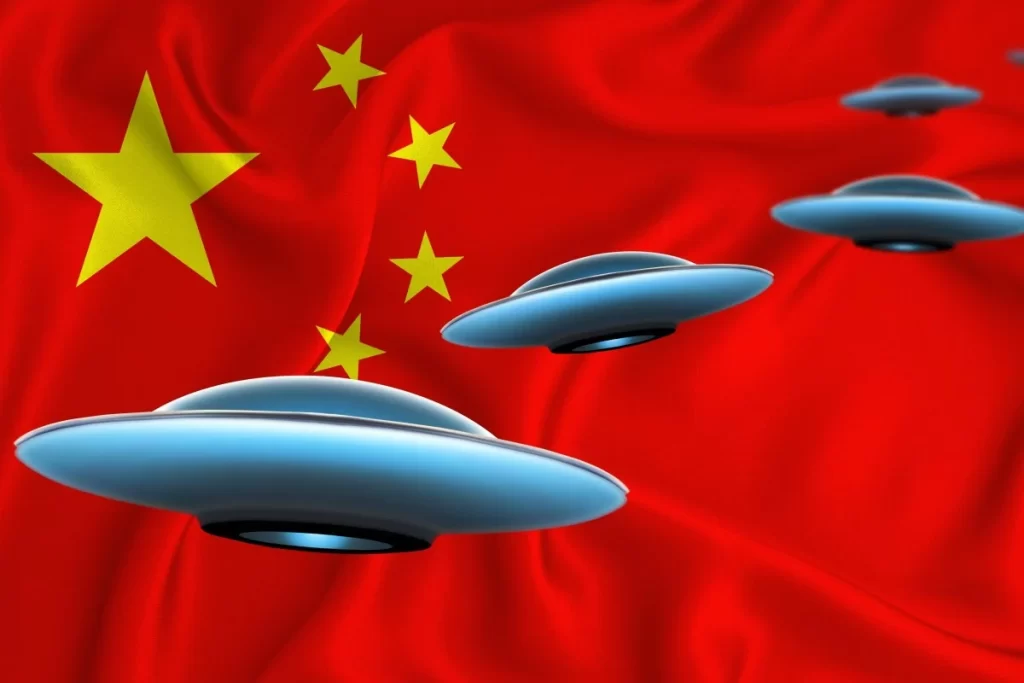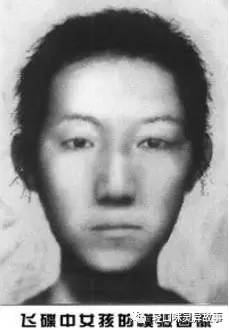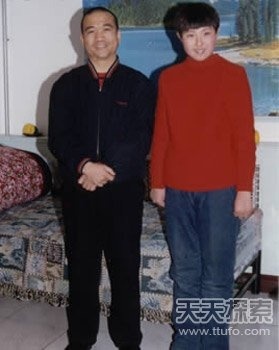by Charles Lear
 UFOlogy in China is deeply interwoven with China’s politics. In 1978, China began what is known as “the reform,” which involved China opening up its economy to the West and the lifting of many restrictions. According to the article by Malcolm Thompson, “On UFOlogy With Chinese Characteristics and the Fate of Chinese Socialism,” in the May-August 2020 edition of the online journal Made in China, “there was no public UFOlogy in China before the reform period, and Chinese UFOlogy and the reform period began at almost exactly the same time.” According to Thompson, the China UFO Enthusiasts Liaison Office was set up at Wuhan University on September 20, 1979. This became the China UFO Research Association by May 1980 and by the mid-1980s, there were over 40 branch organizations with thousands of members all over the country. As the reform developed and the state’s limits of tolerance were tested, the state approved approach to UFOlogy became science based and strictly non-paranormal. With this limitation in mind, UFOlogists are not only free to investigate but often do so with the government’s help.
UFOlogy in China is deeply interwoven with China’s politics. In 1978, China began what is known as “the reform,” which involved China opening up its economy to the West and the lifting of many restrictions. According to the article by Malcolm Thompson, “On UFOlogy With Chinese Characteristics and the Fate of Chinese Socialism,” in the May-August 2020 edition of the online journal Made in China, “there was no public UFOlogy in China before the reform period, and Chinese UFOlogy and the reform period began at almost exactly the same time.” According to Thompson, the China UFO Enthusiasts Liaison Office was set up at Wuhan University on September 20, 1979. This became the China UFO Research Association by May 1980 and by the mid-1980s, there were over 40 branch organizations with thousands of members all over the country. As the reform developed and the state’s limits of tolerance were tested, the state approved approach to UFOlogy became science based and strictly non-paranormal. With this limitation in mind, UFOlogists are not only free to investigate but often do so with the government’s help.
 On February 27, 2019, Martin had Hong Kong UFO researcher/investigator Cheuk Fei on as a guest. During the show, Fei described UFOlogy as it exists in Mainland China. He talked about how the government, military, and police often assist investigators and gave as an example a famous abduction case. In 1999, a middle-aged man from Beijing named Cao claimed he’d been abducted by aliens. He said that when he was aboard their craft, he was shown a sick-looking young girl and instructed to cure her as part of an experiment. According to Fei, Cao was hypnotized in a military hospital.
On February 27, 2019, Martin had Hong Kong UFO researcher/investigator Cheuk Fei on as a guest. During the show, Fei described UFOlogy as it exists in Mainland China. He talked about how the government, military, and police often assist investigators and gave as an example a famous abduction case. In 1999, a middle-aged man from Beijing named Cao claimed he’d been abducted by aliens. He said that when he was aboard their craft, he was shown a sick-looking young girl and instructed to cure her as part of an experiment. According to Fei, Cao was hypnotized in a military hospital.

 The case is described in an article by Lin Meilian headlined “Out of this World” posted on the Global Times website in 2012. According to this version, in 2000, Zhang Jingping, director of the Investigation Department of the World Chinese UFO Association, took on the case. As part of the investigation, Zhang took Cao to a police station where the police created a computer image of the girl based on Zhang’s description. According to the article, the girl was found but was too mentally unstable to be a reliable witness.
The case is described in an article by Lin Meilian headlined “Out of this World” posted on the Global Times website in 2012. According to this version, in 2000, Zhang Jingping, director of the Investigation Department of the World Chinese UFO Association, took on the case. As part of the investigation, Zhang took Cao to a police station where the police created a computer image of the girl based on Zhang’s description. According to the article, the girl was found but was too mentally unstable to be a reliable witness.
The declining tolerance of the paranormal aspects of UFOlogy by the state parallels the state’s disapproval of aspects of qigong, a practice involving a series of exercises believed to optimize the body’s energy. Unlike Tai Chi, qigong uses specific exercises to achieve specific results.
According to Thompson, in 1981, the All China Qigong Science Research Association was established. Interest in qigong grew and the practice had the approval of national leaders, including Quian Xueson, “the father” of China’s space program. The QSRA became a national-level umbrella organization for hundreds of member organizations. At this point, QSRA became a focal point for paranormal research. Because qigong supposedly brought about “extraordinary powers,” while trying to explain where these powers came from, researchers made references to paranormal studies and experiments done in the West. By 1993, QSRA became a state-level social organization under the Ministries of Health and Civic Affairs.
According to Thompson, qigong’s popularity rose to where it became known as “qigong fever.” This happened as the term “with Chinese characteristics” entered the public discourse after Deng Xiaoping used the phrase “socialism with Chinese characteristics” in his opening speech in 1982 at the Twelfth National Congress of the Chinese Communist Party. This resulted in attempts to combine traditional Chinese culture with science and technology.
As a result of qigong’s link to paranormal study, a form of qigong UFOlogy developed. As an example, Thompson brings up the book, “A Summoning to the Idea of the Source of Life,” which he says is “commonly known” as “Eastern UFOlogy.” It was published in 1993 by Lin Qingquan, director of the Guangdon School of Flying Saucer Technology. Among the ideas presented are that “the power source of flying saucers is spiritual thought” and that “Aliens, like the qigong masters of the Earth, can directly absorb the yin capacities of the universe and thus avoid the necessity of eating and drinking.”
According to Thompson, the China UFO Research Association attained legal status as an organization through its association with QSRA beginning in 1988. As qigong UFOlogy became more prominent, members of CURA began to become concerned that their organization was being “infiltrated” by pseudoscience. At CURA’s Fourth National Congress in 1992, the organization declared its commitment to “the dialectical-materialist guiding principle.”
By this time, a form of quigong that incorporated Buddhism, Taoism, and Confucianism, known as Falun Gong, began to rise in popularity with support from the CCP. Li Hongzhi, the leader of the movement, entered the QSRA in 1993. According to the Wikipedia entry on Falun Gong, in 1999, government estimates put followers of Falun Gong at 70 million. It was perceived as a threat by the Chinese Communist Party, and they moved to suppress it through propaganda, blocking of internet sites, and imprisonment. In October of 1999, Falun Gong was labeled a “heretical organization” that threatened the stability of Chinese society. Qigong was affected as well and limited to strictly medical practice and research. During the buildup to the action by the CCP, CURA lost its status as a second-level study society under the QSRA and was compelled to disband.
Qigong UFOlogy was now forbidden in China, but UFO groups that stuck to the scientific “nuts and bolts” approach had nothing to worry about. In the January 11, 2000 New York Times article “Beijing Journal: UFO Boom Doesn’t Worry China’s Rulers,” it is pointed out that many of China’s UFO groups at that time required not only that their members had a degree, but also published work. Highlighting the political atmosphere at the time is a quote from Jin Fan, head of the Dalian UFO Research Society: “The Study of UFOs is fundamentally different from other things like Falun Gong and qigong, which have come under criticism lately. This is a purely scientific field, whereas Falun Gong deals with cults and superstition.”
Fei repeatedly pointed out China’s intolerance of paranormal ideas throughout his appearance on Podcast UFO. According to Fei, this extended to movies. Fei explains that if the producers of a paranormal-themed movie hope to get it distributed in Mainland China, the ending needs to be changed to explain any mysterious occurrences in the movie in prosaic terms. Something like: “Yes, I’d have gotten away with it too, if it wasn’t for these blasted kids and their dog!”
Scooby-Doo: Where Are You? Season 1: Big Bob Oakley in A Gaggle of Galloping Ghosts